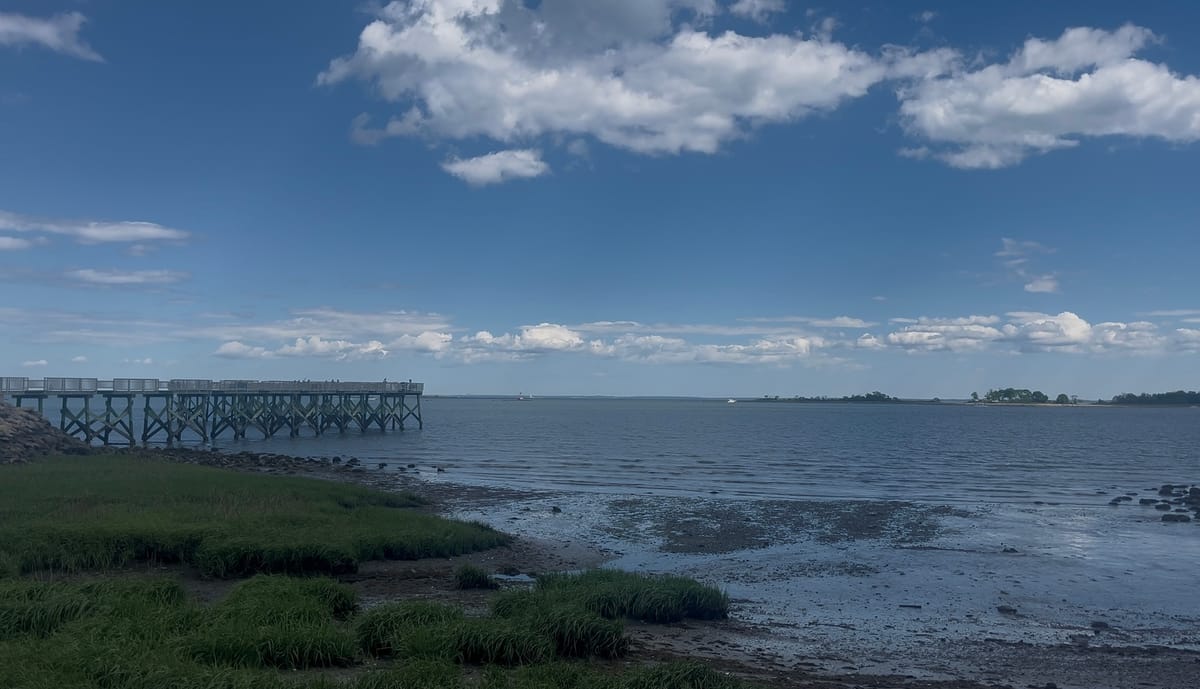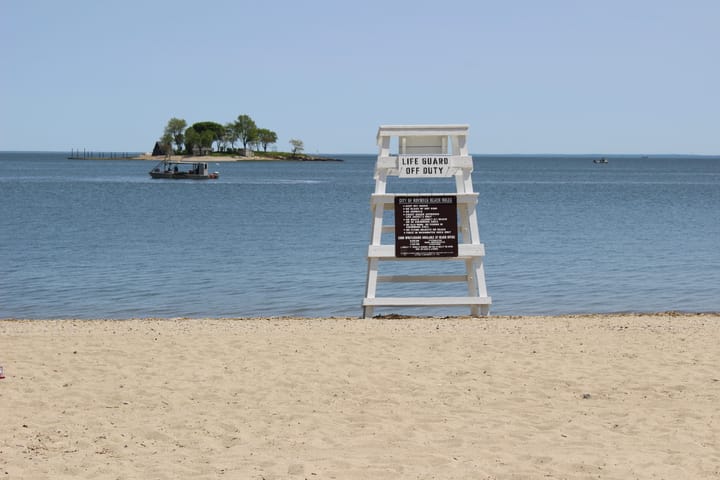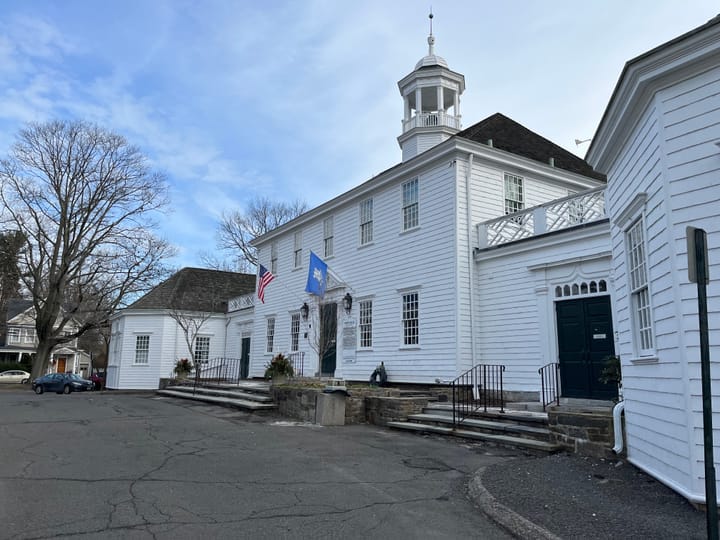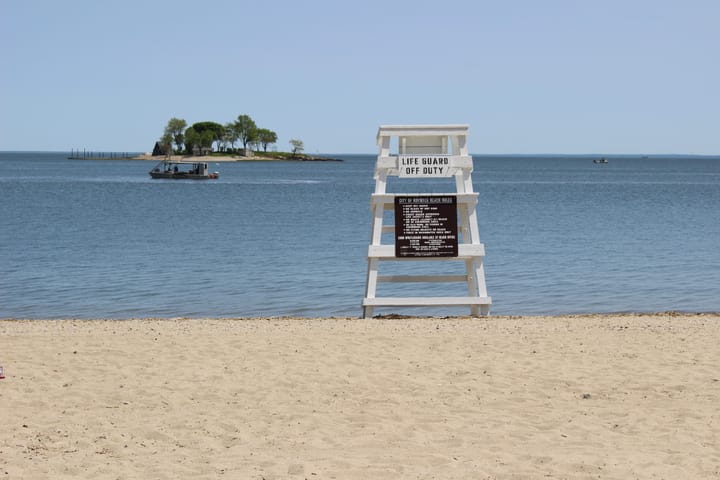Report Finds Mixed Reviews for Southwest Connecticut Beach Water as Heavy Rain Causes Challenges
Save the Sound's 2025 Beach report featured good news for southwest Connecticut as well as some challenges around water quality in the Long Island Sound.

Just days after a new Save the Sound report was released outlining water quality at beaches in southwest Connecticut, some waters across the region were closed to swimming over Memorial Day weekend following heavy rains.
Of the 26 beaches in our region, 17 received an A or B grade for their water in 2024, including four beaches that had A+ grades—Seabright Beach in Bridgeport and three beaches in Norwalk: Calf Pasture, Bell Island, and Rowayton. More than 10 beaches saw their water quality improve from 2023 to 2024, according to the 2025 Long Island Sound Beach Report from Save the Sound, an environmental advocacy group.
But just days after this report was released some of those beaches, including Calf Pasture, had to be closed to swimming due to high bacteria counts after heavy rains.
The report also found that southwest Connecticut was also home to two of the lowest scoring beaches in the state—Byram Park Beach in Greenwich, which received a D, and Sasco Beach in Fairfield, which received a C.
Beaches are graded based on the level of Enterococcus, a fecal indicator bacteria that determines whether the water is safe for swimming.
“The most common reason for beach closures is when Enterococci levels in water samples exceed the state-established criteria, exposing swimmers to pathogens that can cause a variety of symptoms and could result in illnesses,” the report found.
Explore our previous video on how water quality monitoring is done in the Sound and why it matters.
Wet Weather Challenges
The report cited numerous challenges that affect water quality include aging sewer infrastructure, septic systems, animal waste, and stormwater runoff. All of these challenges are exacerbated as it rains.
“The more it rains, the more this parade of pollutants threatens the water at our beaches. And it’s raining more,” the report stated. “We’re coming off the wettest two-year stretch (40 total inches) and the wettest five-year span (91 inches) around Long Island Sound dating back at least to 2003.”
The report found that the number of closures due to wet weather rose in our region over the last two years. When it rains, the runoff tends to pick up pollutants, including fecal matter, that then reaches the Sound and causes a temporary decline in water quality, according to the report.
“Our 2025 Long Island Sound Beach Report demonstrates just how urgent it is that we prioritize new investment in sewage and stormwater infrastructure,” David Ansel, vice president of Save the Sound’s Center for Water Protection, said in a statement. “If we’re not proactive, the impacts of climate change will undo so much of our successful past and ongoing work in restoring the water quality of the Sound.”
These challenges came to light this weekend when many beaches in the region had their waters closed to swimming following heavy rain late last week.
In Norwalk, the water at Calf Pasture Beach and Shady Beach were closed into Saturday after elevated bacteria levels were found.
In Greenwich, officials said that this year they’re implementing new policies to make the waters safer for swimmers.
“Starting this year, after rainfall events of one-third of an inch or greater, Byram Beach will close automatically for one beach day. It previously had been half an inch of rainfall, but this is considered safer,” First Selectman Fred Camillo said in a statement. “Throughout the beach season, whenever there is rainfall, please check to make sure our beaches are safe for swimming. The Departments of Health and Parks and Recreation will continue to adhere to the existing Town policy of restricting swimming after certain rainfall events take place.”
What Can Be Done
Save the Sound outlines efforts that can be done to enhance water quality in the Long Island Sound. These include:
- Supporting efforts to upgrade sewer infrastructure to address leaks and aging infrastructure.
- Modernizing and moving away from septic systems that can pollute local waters, particularly if improperly maintained.
- Educating residents on the impacts of dog waste on the water and working to put up trash cans to help make sure people pick up after their pets.
- Enhancing green infrastructure efforts, such as rain gardens, to help clean and collect stormwater runoff before it makes it into the Sound.
You can check out the full report on Save the Sound’s website.



